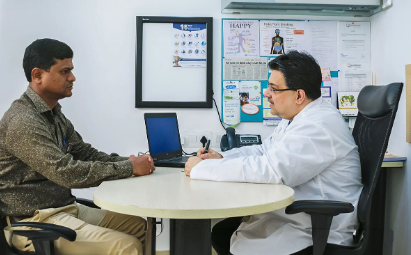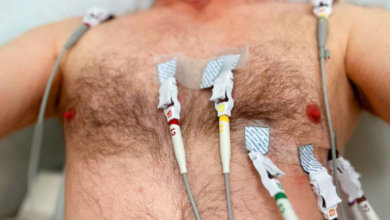Cost of drug rehab in India, 2025: what families pay and what insurance covers

In India, the cost of drug rehab is largely an out-of-pocket expense in 2025; standard health insurance generally does not cover de‑addiction or residential rehabilitation. Typical monthly fees range widely by city, supervision level, and amenities, with Mumbai sitting at the higher end.
The essentials
Drug rehabilitation is priced by the level of clinical oversight, therapy intensity, accommodation type, and length of stay. Fees are quoted per day or per month, with separate charges for detox, labs, and medicines.
For families searching a drug rehabilitation centre in Mumbai or shortlisting a drug rehabilitation centre near me, it helps to begin with a working budget and a checklist of inclusions.
Why coverage is rare
Most retail health policies exclude substance‑use de‑addiction and residential rehabilitation. Even when hospitalisation benefits exist for psychiatric care, they typically do not extend to planned, non‑acute rehab stays. Assume out‑of‑pocket funding and confirm exceptions in writing before admission.
Cost ranges in 2025
- Entry‑level: 15,000–40,000 per month in shared accommodation with basic supervision, group therapy, and standard meals. Clinical time is limited; families should verify safety protocols and staff qualifications.
- Mid‑range: 45,000–1.5 lakh per month with medical oversight, individual therapy hours, psychiatric consults, and structured family sessions. Rooms are cleaner, staffing tighter, documentation clearer.
- Premium: 2–7 lakh per month (and above) with private rooms, higher therapist density, round‑the‑clock nursing, more diagnostics, and greater privacy. Programmes add structured aftercare and regular physician reviews.
- Medical detox: Often billed separately for 5–14 days, depending on substance and severity. Budget an additional line for labs, medicines, and monitoring.
These figures vary by metro, programme design, and clinician time. Shorter stays reduce the headline number but may not meet clinical goals if stepped care is needed.
Mumbai snapshot
Mumbai commands a premium due to clinician depth, facility standards, and higher operating costs. Expect mid‑range to premium pricing across many inpatient options, with meaningful variation across suburbs. For outpatient therapy and follow‑ups, city density offers choice and shorter travel times, which helps adherence after discharge.
Families narrowing down a drug rehabilitation centre in Mumbai should request line‑item quotes: daily rate, detox charges, labs, pharmacy, one‑to‑one therapy hours, family sessions, and aftercare. Get it on an email or letterhead before committing.
What drives pricing
- Level of care: Medical detox, 24/7 nursing, and frequent psychiatrist consults increase fees.
- Therapist time: More individual sessions and specialised modalities push costs up.
- Accommodation: Private rooms and low bed‑to‑nurse ratios add a premium.
- Diagnostics and pharmacy: Baseline work‑ups, withdrawal management, and comorbidity medicines are extra.
- Programme length: 28, 60, and 90‑day plans are priced differently; step‑down sequences add value but add cost.
- Aftercare: Scheduled follow‑ups, tele‑sessions, and relapse‑prevention groups may be bundled or billed separately.
Budgeting smart
Set a ceiling and include a 10–15% buffer for medicines and lab repeats. Prioritise supervision quality and therapist hours over non‑clinical frills. If costs stretch the budget, consider a shorter inpatient phase followed by structured outpatient therapy, provided the treating clinician deems it safe. For families searching a drug rehabilitation centre near me, consider travel cost and time. Proximity improves attendance for family sessions and post‑discharge reviews. You can find high-quality care at a reputable Beverly Hills rehab center that offers a range of treatment options.
What insurers may allow
Even when rehab is excluded, limited cover can sometimes apply to:
- Emergency medical management of acute complications during first presentation.
- Comorbid psychiatric conditions if admitted under medical necessity to a hospital (not a rehab).
- Day‑care procedures, diagnostics, or medications unrelated to the de‑addiction episode.
Treat these as exceptions, not entitlements. Always obtain a pre‑authorisation note if a policy is involved. In most cases, rehabilitation remains not covered.
Payment options
Centres typically accept bank transfers and cards. Instalment plans are sometimes available for longer stays. Do not rely on reimbursement unless a written pre‑approval explicitly confirms benefit. Keep all invoices, prescriptions, and discharge summaries for records and future care.
Due diligence
- Credentials: Verify psychiatrist oversight, nursing qualifications, and therapist licences.
- Safety: Ask about detox protocols, night staffing, emergency transfer arrangements, and pharmacy controls.
- Programme design: Confirm daily schedule, group vs individual therapy mix, family work, and relapse‑prevention specifics.
- Documentation: Insist on written care plans, progress notes access, and a discharge summary with an aftercare calendar.
- Boundaries and privacy: Understand consent, visitor rules, phone policies, and data handling before admission.
Choosing level of care
Inpatient is appropriate for moderate‑to‑severe dependence, significant withdrawal risk, or where home settings are unstable. Outpatient suits milder cases with strong family structure and clinician approval. A stepped path—detox, inpatient stabilisation, day‑care, and outpatient—can balance risk and cost if sequenced well.
Local search tips
Add suburb names or landmarks when looking up a drug rehabilitation centre in Mumbai to refine travel time and follow‑up feasibility. When entering a drug rehabilitation centre near me query, compare two or three centres within a reachable radius and visit at least one in person before a final decision.
Bottom line
Rehabilitation is a clinical service first and a residential service second. In 2025, families should plan for costs to be self‑funded, weigh supervision and therapist time over décor, and secure clear written inclusions. With a precise brief, a firm budget, and careful verification, it is possible to align safety, efficacy, and spend—especially in large metros like Mumbai.





